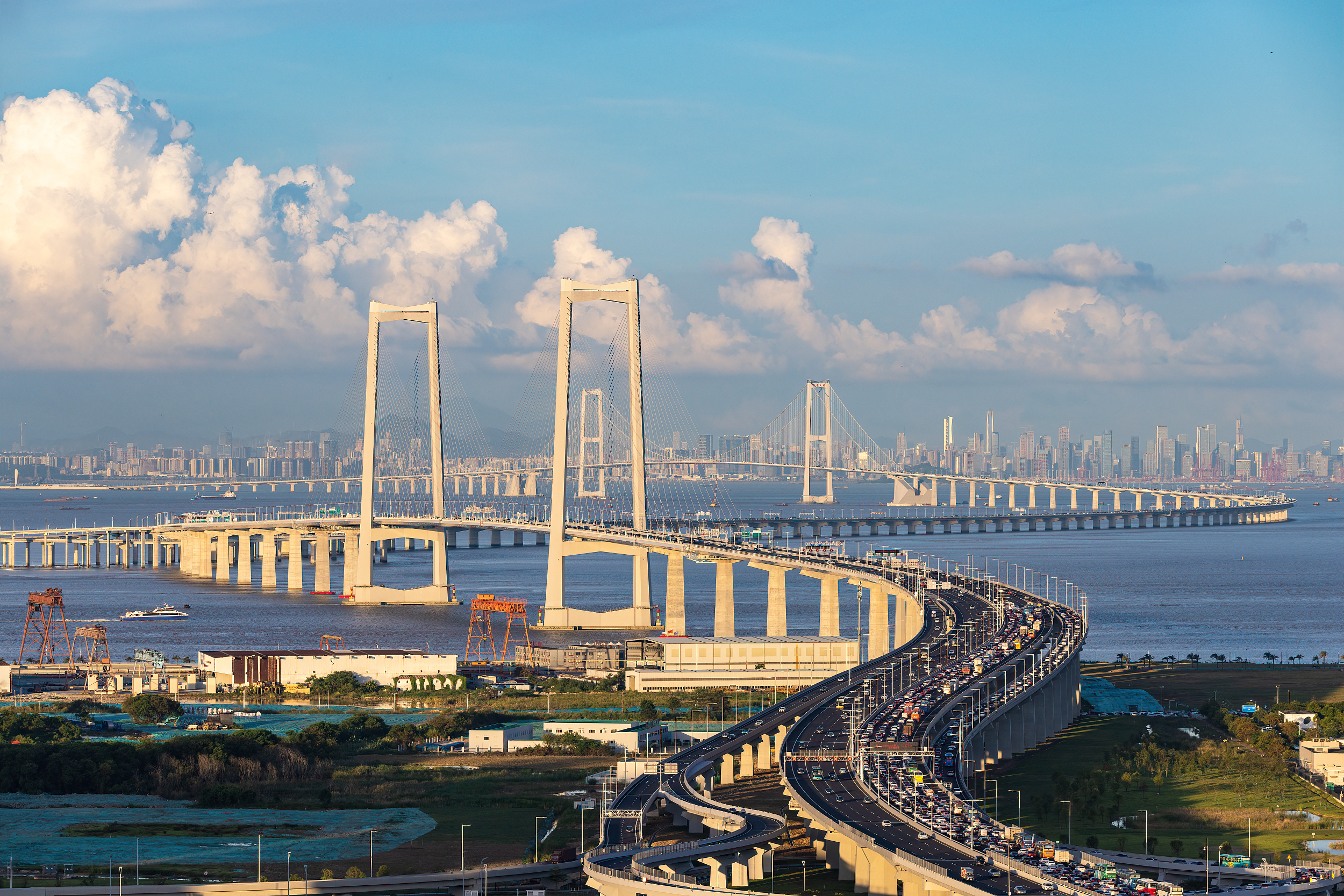China's Reform Aids Global Prosperity

The Shenzhen-Zhongshan Link, opened to traffic on June 30, is a mega cross-sea passage in south China that features two bridges, two artificial islands, and an underwater tunnel. (PHOTO: VCG)
Edited?by?QI?Liming
The 20th Central Committee of the Communist Party of China concluded its third plenary session on July 18, further deepening reform comprehensively to advance Chinese modernization.
Institutions, scholars and authorities closely watching the session generally applaud the results achieved through China's reform and opening up over the past decades, and are optimistic about the future of the Chinese economy.
Reform and opening up brings prosperity
Reform and opening up is a monumental journey of development and progress for both China and the world.
According to the U.S. Cato Institute, since China's reform and opening up movement began in 1978, there has been significant progress toward moving to a market-oriented economy. Marketization and economic growth went hand in hand.
In addition to internal reforms that widened the use of markets, China's rapid development was driven by its opening to the outside world. In 2001, China joined the WTO and benefited from globalization, as did its trading partners, while also contributing to global economic growth.
Over the past decades, China has allowed a variety of non-state-owned businesses, including private enterprises, foreign-funded enterprises, and shareholding companies. In fact, the private/non-state sector has been pivotal in providing individuals with opportunities to rise out of poverty and embrace prosperity.
According to the World Economic Forum (WEF), China experienced an unprecedented economic growth rate after implementing economic reforms and opening up in the 1970s and 1980s. Economic output per person, for instance, has increased by roughly 3,000 percent in recent decades according to the WEF, leading many analysts to refer to China's economic growth as a "miracle".
Economic growth optimism
The WEF's May 2024 Chief Economists Outlook, a survey of top economists from around the world, also found that analysts broadly expect further growth in China. Of the economists surveyed in the report, nearly 75 percent said they expect moderate growth in China. The figure marked an increase from the 69 percent who expected moderate growth in the previous edition of the report conducted this January.
According to the East Asia Forum, the Chinese economy is the multi-trillion-dollar carrier of the global economy, whose growth has been boosted by China's extraordinary rise for decades. The fundamentals of the Chinese economy remain good.
Meanwhile, the International Monetary Fund (IMF) has upgraded its forecast for China's economy. The IMF's report issued in May, said China will likely expand at a five percent annual rate this year, based on its growth in the first quarter, boosting the global economy. The IMF praised the Chinese government's focus on what it calls "high quality" growth, including increased investment in clean energy and advanced technology and improved regulation of financial industries.
China's growth rate of roughly five percent equates to a "massive" scale, Denis Depoux, global managing director at German consultancy Roland Berger, told Nikkei Asia. "It's [like] adding one Holland every year, [and] it's [like] adding Germany in five years," he said. China is also rising as a source of technological innovation, according to Depoux.






